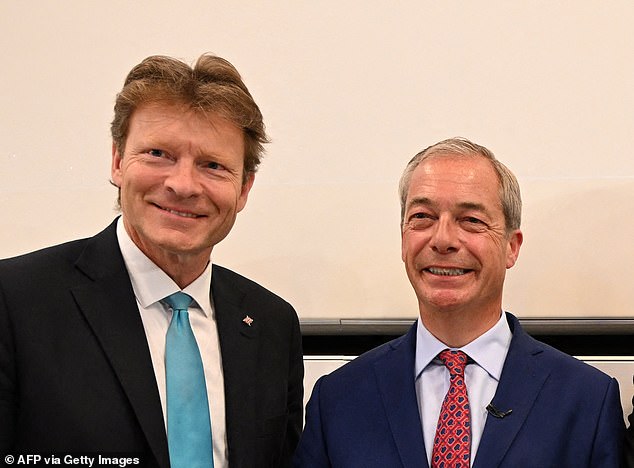Running in parallel with Donald Trump’s ‘Liberation Day’ tariff horror has been the President’s furious and uncouth attacks on America’s independent central bank.
Trump makes little secret of his contempt for current chairman of the Federal Reserve, Jay Powell, even though he nominated him for the job in his first term.
Powell has refused to be a White House cipher, standing firm against Trump’s unrelenting campaign to cut the US’s key federal funds interest rate from the current 4.25 per cent to 4.5 per cent range. The Fed chairman’s obduracy remains intact despite last week’s dissent by two Trumpian choices as Fed interest rate-setters.
Events across the Atlantic appear to have little relevance to the UK, where Chancellor Rachel Reeves started her illustrious rise to the nation’s top economic post at the Bank of England. Governor Andrew Bailey is a friend, even though the Chancellor and Governor are currently at odds over lifting the burden of City regulation.
A more important clash between the Bank and the Government is on the horizon. Bailey is known to be dismissive of the short-lived administration of Liz Truss.
In her memoir, Truss was unforgiving of the role that she claims Bailey played in her downfall.

Dynamic duo: Reform’s Richard Tice and Nigel Farage advocate populist policies
Dangerously for the Bank, critics on the Left and the Right are targeting its credibility and independence. The Leftist New Economics Foundation has consistently campaigned against the Bank’s approach to ‘quantitative tightening’.
This process involves running down the £895billion of gilt holdings the Bank acquired between 2009 and 2021 as it injected cash into the banking system with the aim of averting recession and calming markets.
The Treasury agreed to indemnify the Bank against losses at a potential cost of £130billion over the current decade.
The UK approach is seen as meeting standards of fiscal probity but imposes an extraordinary burden on public finances at a time when the debt to national output (GDP) ratio is close to 100 per cent.
The Fed, in contrast to the UK, decided to continue to hold Treasuries (the equivalent of gilts), bought in the post-financial crisis era, on its books and hold them to maturity. So there are no paper losses.
Neil Collins (a former colleague) pointed to the daftness of Bank policy in a recent letter to The Spectator magazine. He noted that in May 2020 the Bank bought a long-gilt, dated 2061, for £101.
It recently sold the very same stock at a price as low as £28!
Few people pay much attention to ‘Reform-onomics’, even though Nigel Farage leads in the opinion polls. The main criticism of Reform is that the party’s big-spending, populist policies are costly and could trigger a fresh Truss-like crisis.
Less debated is the dispute between Reform apparatchik Richard Tice MP and Bailey over monetary policy. Tice suggests that the Bank’s approach to quantitative tightening has enriched high street banks and is costing the taxpayer money.
But Bailey points out the Bank booked an earlier £124billion profit on its gilt purchases and, for the moment, the Government is £34billion up.
Details of the dispute are obscure. The more sinister point for Threadneedle Street is that Tice and Reform see Bank independence as potentially a soft target.
Echoes of Donald Trump’s attacks on the Fed can be heard loudly.
DIY INVESTING PLATFORMS

AJ Bell

AJ Bell
Easy investing and ready-made portfolios

Hargreaves Lansdown

Hargreaves Lansdown
Free fund dealing and investment ideas

interactive investor

interactive investor
Flat-fee investing from £4.99 per month

InvestEngine

InvestEngine
Account and trading fee-free ETF investing
Trading 212
Trading 212
Free share dealing and no account fee
Affiliate links: If you take out a product This is Money may earn a commission. These deals are chosen by our editorial team, as we think they are worth highlighting. This does not affect our editorial independence.
This article was originally published by a www.dailymail.co.uk . Read the Original article here. .

